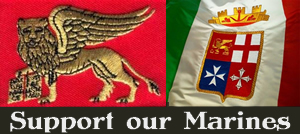Faccio presente che questo topic dovrebbe trattare l'argomento come da titolo, quindi chiedo ai convenuti di restare dentro l'argomento, in quanto in alcune occasioni si è andati OT.
Quindi vi chiedo di tener conto di quanto ho detto, non vorrei essere obbligato a chiudere il topic.



 Rispondi citando
Rispondi citando







